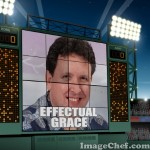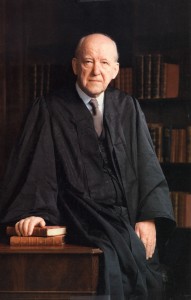 From Matthew 11:25-30
From Matthew 11:25-30
(1) God hides some things from some and reveals them to others (election)
25 At that time Jesus declared, “I thank you, Father, Lord of heaven and earth, that you have hidden these things from the wise and understanding and revealed them to little children; 26 yes, Father, for such was your gracious will. 27 All things have been handed over to me by my Father, and no one knows the Son except the Father, and no one knows the Father except the Son and anyone to whom the Son chooses to reveal him.
(2) Come to me all…. (the evangelistic call)
28 Come to me, all who labor and are heavy laden, and I will give you rest. 29 Take my yoke upon you, and learn from me, for I am gentle and lowly in heart, and you will find rest for your souls. 30 For my yoke is easy, and my burden is light.”
From Luke 24:16-31
(3) God veiling:
v. 16 But their eyes were kept from recognizing him.
(4) Human responsibility and culpability:
v. 25 And he said to them, “O foolish ones, and slow of heart to believe all that the prophets have spoken!”
(5) God Revealing:
v. 31 And their eyes were opened, and they recognized him.
From Romans 11:7-10
(6) God hardening:
7 What then? Israel failed to obtain what it was seeking. The elect obtained it, but the rest were hardened, 8 as it is written,
(7) God making eyes blind and ears deaf to His truth:
“God gave them a spirit of stupor, eyes that would not see and ears that would not hear, down to this very day.” 9 And David says, “Let their table become a snare and a trap, a stumbling block and a retribution for them; 10 let their eyes be darkened so that they cannot see, and bend their backs forever.”

 Someone sent me this today… I definitely did the tambourine and tie thing. 🙂
Someone sent me this today… I definitely did the tambourine and tie thing. 🙂 Author: Born in South Wales, Dr. Martyn Lloyd-Jones trained at St. Bartholomew’s Hospital and thereafter practiced as a physician and was assistant to the famous Lord Horder. After leaving medicine in 1927, he became the minister of a Welsh Presbyterian Church in Aberavon, South Wales. He was there until 1938 when he moved to London to share the ministry of Westminster Chapel in Buckingham Gate with the late Dr. G. Campbell Morgan, who retired in 1943. This ministry lasted for 30 years until Dr. Lloyd-Jones retired in August 1968. He then engaged in a wider preaching ministry and in writing until shortly before his death in 1981.
Author: Born in South Wales, Dr. Martyn Lloyd-Jones trained at St. Bartholomew’s Hospital and thereafter practiced as a physician and was assistant to the famous Lord Horder. After leaving medicine in 1927, he became the minister of a Welsh Presbyterian Church in Aberavon, South Wales. He was there until 1938 when he moved to London to share the ministry of Westminster Chapel in Buckingham Gate with the late Dr. G. Campbell Morgan, who retired in 1943. This ministry lasted for 30 years until Dr. Lloyd-Jones retired in August 1968. He then engaged in a wider preaching ministry and in writing until shortly before his death in 1981.